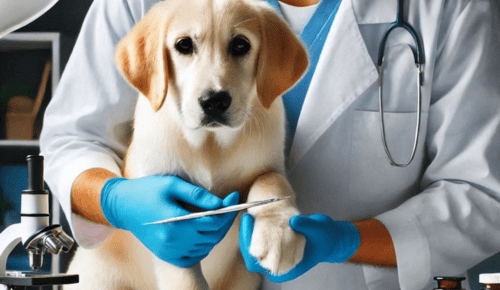Medical
Orthopedic Surgeons: The Heroes Behind Successful Post-Trauma Recovery
Orthopedic surgeons are the lifebuoys of recovery. They are the unseen heroes who work tirelessly to ensure trauma victims regain their strength, mobility, and livelihood. Their profound knowledge ranges from routine recovery procedures to incredibly complex therapies like Venice joint replacement. This article will shed light on their crucial role in post-trauma recovery and celebrate their unsung contributions.
What Does an Orthopedic Surgeon Do?
Orthopedic surgeons work on the backbone of our body – the musculoskeletal system. This includes bones, joints, muscles, ligaments, and tendons. They might use surgery or non-surgical methods to treat a wide array of conditions – from minor fractures to serious accidents.
The Road to Recovery
Recovery after a traumatic event is like rebuilding a house after a storm. It requires patience, expert hands, and a concrete plan. The orthopedic surgeon is the architect of this plan. They diagnose the issue, draft a recovery roadmap, and then work step by step to restore the patient’s health.
Key Procedures in Post-Trauma Care
Every case is unique. Yet, we can see common threads in the procedures orthopedic surgeons use. Here are three key procedures in post-trauma care:
- Fracture repair: Fixing broken bones
- Arthroscopy: A minimally invasive procedure to diagnose and treat joint issues
- Joint replacement: Replacing damaged joints, like in the case of Venice joint replacement
Each procedure is a step on the path to recovery. These are often complemented with physical therapy and lifestyle changes.
The Importance of Orthopedic Surgeons
Imagine a broken guitar string. Without the right knowledge and tools, it’s just a useless piece of wire. With the right hands, however, it can be tuned back into harmony. The same is true for our bodies. Orthopedic surgeons have the knowledge and tools to bring our bodies back into balance.
Concluding Thoughts
Orthopedic surgeons weave magic with their hands. They take the broken and make it whole again. They turn pain into relief, despair into hope. They might not wear capes, but they are heroes in every sense of the word.
So, let’s take a moment to appreciate these guardians of health. Let’s spread the word about their vital role in our healthcare system. And let’s give thanks for their tireless efforts to improve our lives.
Medical
Discovering Care Through North Texas Surgical Teams
There’s something about the word “surgery” that makes you pause. Maybe it’s the unknowns. The waiting. Or the fact that it often marks a turning point—one you didn’t see coming. Whether it’s a planned procedure or a sudden necessity, what we all want in those moments is reassurance. We want to know we’re not just another file on the desk or another case on the schedule.
That’s where North Texas is quietly changing the script.
In the heart of Texas, a collection of surgical groups, centers, and specialists are delivering more than just top-tier medical care. They’re offering clarity, kindness, and connection during a time that can feel uncertain and overwhelming. Let’s take a walk through what makes this region such a standout in surgical care.
A Team That Listens First, Operates Second
One of the most powerful things about the North Texas Surgical Group is that they’ve made it their mission to truly listen. Sure, they’ve got credentials, experience, and a long list of successful outcomes—but what patients remember is how seen they felt.
Instead of rushing you from consultation to operation, they slow down. They ask about your lifestyle, your concerns, even your fears. They explain—not just what’s going to happen, but why it’s happening. You feel informed, included, and supported at every step. That kind of approach doesn’t just improve care—it builds trust.
For people facing gallbladder surgeries, hernia repairs, endocrine procedures, or advanced general surgery, having a team that explains things without jargon can feel like a deep breath in a tense time.
Modern Spaces Built for Healing, Not Hustle
Hospitals can be overwhelming. Between the long waits, the crowded halls, and the non-stop bustle, it can be hard to feel calm. That’s why many patients are choosing specialty centers over traditional hospital settings.
Places like North Central Surgical Center offer a different kind of experience. You walk in and immediately feel the difference. The environment is warm, intentional, and organized—like a place designed to heal, not just treat.
It’s not just aesthetics, either. These centers are highly efficient and use cutting-edge equipment and surgical techniques. Because they’re focused solely on surgical care, they’re able to streamline the experience. Pre-op, surgery, and post-op recovery all happen under one roof, often with quicker discharge and fewer complications.
From orthopedic procedures to spine surgeries and everything in between, patients appreciate the balance between technical precision and a less stressful experience.
It’s the People That Make It Personal
Behind every surgical success is a team of professionals who make it happen. But beyond the sterile gowns and state-of-the-art equipment, there’s something more important: humanity.
The heart of what makes these institutions work so well isn’t just the tools—it’s the people. From the receptionist who remembers your name, to the nurse who holds your hand before anesthesia, to the surgeon who checks in after hours—these are the touches that matter most.
That’s exactly the energy that a North Texas Surgical Specialist brings to the table. Their work isn’t just clinical; it’s deeply personal. Whether they’re handling routine procedures or complex surgeries, their goal is always to make the patient feel safe, informed, and cared for.
And here’s the thing—patients feel it. They talk about how smooth their recovery was, how clearly the process was explained, and how they never felt like “just another number.” In a field that’s often rushed and impersonal, that kind of care is rare. And it’s deeply needed.
Why More Texans Are Choosing Regional Excellence
You don’t need to travel to a coast or a massive university hospital for excellent care anymore. North Texas is becoming a destination in its own right—because of its blend of skilled professionals, efficient facilities, and compassionate culture.
There’s a sense of pride in how things are done here. The bar is high. Teams hold each other accountable, not just for outcomes, but for patient experience. And word is spreading. People are choosing these local centers not just because they’re convenient—but because they’re genuinely excellent.
Even for those coming from out of town, the process is smooth. With coordinated care, transparent billing, and modern facilities, it’s a far cry from the confusing, slow, and often cold bureaucracy of larger health systems.
Making the Choice That Feels Right for You
In the end, choosing a surgical provider isn’t just about credentials (though those matter). It’s about how you feel when you walk in. Are your questions answered? Do you feel respected? Is the care personal?
If you’re in North Texas—or even just nearby—you’ve got options that hit all the right notes. From the experienced professionals at North Texas Surgical Group, to the efficient and welcoming setup at North Central Surgical Center, and the compassionate approach of every North Texas Surgical Specialist—this region is redefining what surgical care can look and feel like.
So if you’re facing a procedure, don’t settle for a system that makes you feel small. Choose one that remembers you’re human.
Health
Five Common Myths About Small Animal Veterinary Care Debunked

Understanding small animal veterinary care can feel overwhelming. It’s easy to fall prey to myths when caring for our beloved pets. These myths often lead to unnecessary worry or improper care. A veterinarian in Silver Spring, MD sees these misconceptions frequently. They can cloud judgment and alter how we care for our pets. It’s crucial to separate fact from fiction to ensure our pets receive the best care possible. In this blog, we will address five common myths about small animal veterinary care. Each myth affects the way we perceive and handle the health of our small pets. By clearing up misunderstandings, we empower ourselves to make informed decisions. This approach keeps our pets healthy and happy. Let’s dive into these myths and reveal the truth that can guide us in nurturing our furry companions. Understanding these truths is the first step toward more effective pet care.
Myth 1: Regular Check-Ups Are Unnecessary
Many pet owners believe that if their pet seems healthy, regular vet visits aren’t needed. This myth can put pets at risk. Routine check-ups help detect issues early. Early detection means more treatment options and better outcomes. According to the American Veterinary Medical Association, regular exams are crucial for maintaining your pet’s health. These visits allow veterinarians to monitor growth, check for parasites, and update vaccinations. Skipping these can lead to missed health problems.
Myth 2: Indoor Pets Don’t Need Vaccinations
Some owners think indoor pets are safe from diseases. This belief is misleading. Vaccinations protect against diseases that can be carried indoors by other animals or even on clothing and shoes. Core vaccines are recommended for all pets, regardless of their lifestyle. Rabies, for example, is a virus that could affect indoor pets and is often required by law. Vaccinating your pet not only keeps them safe but also protects others around them.
Myth 3: Spaying and Neutering Cause Weight Gain
A common concern is that altered pets gain weight. While metabolism changes after spaying or neutering, weight gain is not a direct result of the procedure. Instead, it often relates to diet and exercise. Maintaining a balanced diet and regular activity keeps pets healthy. The ASPCA highlights the benefits of spaying and neutering, including preventing unwanted litters and reducing certain health risks.
Myth 4: A Wet Nose Means a Healthy Pet
People often think a wet nose indicates good health. The truth is that nose moisture can vary. Temperature or environmental changes can affect nose wetness. A dry nose doesn’t mean a pet is sick, just as a wet nose doesn’t guarantee health. Observe overall behavior, appetite, and energy levels for a better health assessment. If concerned, consult a veterinarian for a proper diagnosis.
Myth 5: Pets Self-Medicate with Grass
Many believe that pets eat grass to self-soothe or medicate. While some pets eat grass, it’s not necessarily for medicinal reasons. Dogs and cats may eat grass out of curiosity or boredom. Eating grass doesn’t replace professional care. Persistent grass eating followed by vomiting can signal an underlying issue. Consulting a vet provides peace of mind and ensures your pet’s well-being.
Comparison Table: Myth vs. Reality
| Myth | Reality |
| Regular check-ups are unnecessary | Important for early problem detection |
| Indoor pets don’t need vaccinations | Vaccinations protect against many diseases |
| Spaying/neutering causes weight gain | Weight gain is related to diet and activity |
| A wet nose means a healthy pet | Health assessment requires looking at behavior and energy |
| Pets self-medicate with grass | Grass eating doesn’t replace veterinary care |
Dispelling these myths ensures that we approach pet care with informed understanding. Proper care involves regular check-ups, vaccinations, and following professional advice. By debunking these myths, we are better equipped to provide the care our pets deserve. Remember, when in doubt, consult a veterinarian to guide you on the best path for your pet’s health. This proactive approach keeps our small animal friends healthy and thriving.
Health
A Day in the Life of a General Veterinarian: What to Expect

A day in the life of a general veterinarian is a blend of compassion, expertise, and dedication. At a pet clinic in Murrieta, CA, the day begins early. Veterinarians start by checking on overnight patients who need care and attention. The morning routine often includes a mix of wellness exams, vaccinations, and addressing concerns from pet owners. Each appointment allows me to assess the health and well-being of the animals. Midday brings more involved procedures such as dental cleanings or minor surgeries. These tasks require focus and precision. As the afternoon unfolds, emergencies may arise. A sudden illness or injury can shift priorities. Throughout the day, they communicate with my team to ensure each pet receives the best care possible. The day concludes with updating records and planning for tomorrow. In this role, adaptability and patience are key. Every day is unique, but the goal remains the same: healthy, happy pets.
Morning Routine
The morning starts around 7:30 AM when the Veterinarian arrives at the clinic. The first task is often to check on the animals that stayed overnight. They ensure they are comfortable and recovering well. Then, they move on to scheduled appointments. These usually include wellness exams, where they check vital signs and discuss any changes with the pet owners. Vaccinations are a routine part of the morning, helping to prevent diseases. This period is vital for maintaining the pets’ health and catching any issues early.
Midday Procedures
By late morning, veterinarians prepare for more complex procedures. Dental cleanings are common, requiring careful attention to each pet’s oral health. These procedures can prevent more severe health problems down the line. Minor surgeries, such as spaying or neutering, often occur at this time. They require precision and a steady hand. Each procedure is different, needing specific preparations and techniques. The focus during this time is on accuracy and ensuring the safety of each animal.
Afternoon Challenges
The afternoon can bring unexpected challenges. Emergencies, such as sudden illnesses or injuries, may disrupt the planned schedule. In these moments, quick thinking and decisive action are crucial. Collaborating with the team helps manage these emergencies effectively. Communication with pet owners is key, keeping them informed and involved in decisions. The ability to adapt is essential, as the unpredictable nature of the job means that priorities can shift rapidly.
Concluding the Day
As the day winds down, veterinarians focus on completing necessary paperwork. Updating medical records ensures continuity of care for each pet. This task is vital for future reference and for monitoring ongoing treatments. Planning for the next day involves reviewing the schedule and preparing for upcoming appointments. This preparation allows for a smooth workflow and helps anticipate any special needs. Although the day is long, the satisfaction of helping animals and their owners makes it worthwhile.
Common Procedures and Time Allocation
| Procedure | Time Spent | Frequency |
| Wellness Exams | 30 minutes | Daily |
| Vaccinations | 15 minutes | Daily |
| Dental Cleanings | 1-2 hours | Weekly |
| Minor Surgeries | 2-4 hours | Weekly |
| Emergency Care | Variable | As needed |
The Importance of Continued Learning
Keeping up with the latest veterinary practices is important. Veterinarians regularly attend workshops and read current research to stay informed. Trusted sources like the American Veterinary Medical Association provide valuable information and guidance. This ongoing education helps improve the care provided and ensures that they are using the best techniques available. The field of veterinary medicine is always evolving, so a commitment to learning is crucial.
Final Thoughts
Working as a general veterinarian is rewarding and challenging. Each day offers new experiences and opportunities to make a difference in the lives of pets and their families. The balance of routine care, unexpected emergencies, and ongoing learning keeps the work dynamic. Veterinarians are committed to providing the best possible care and ensuring the well-being of every animal I treat. This profession requires dedication, compassion, and a deep understanding of both science and empathy.
